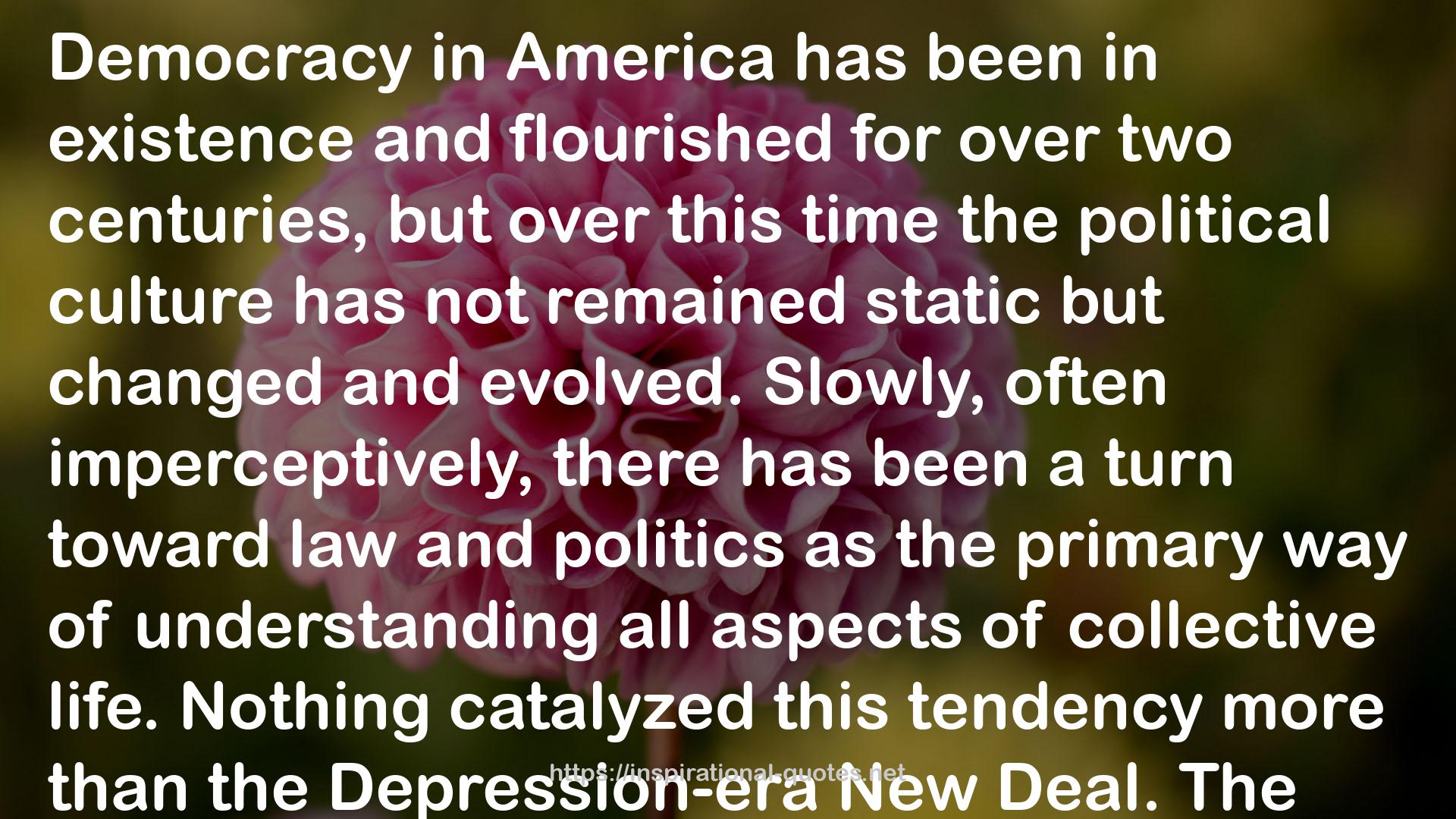" Democracy in America has been in existence and flourished for over two centuries, but over this time the political culture has not remained static but changed and evolved. Slowly, often imperceptively, there has been a turn toward law and politics as the primary way of understanding all aspects of collective life. Nothing catalyzed this tendency more than the Depression-era New Deal. The tendency now effects conservatives every bit as much as it does liberals; those who favor small government as it does those who want a larger government. It has affected everyone’s language, imagination, and expectations, not least conservatives who, like others, look to law, policy, and political process as the structure and resolution to their concerns and grievances; who look to politics as the framework of self-validation and self-understanding and ideology as the framework for understanding others. It is my contention that Nietzsche was mostly right; that while the will to power has always been present, American democracy increasingly operates within a political culture—that is, a framework of meaning—that sanctions a will to domination. This, in turn, is fueled by a political psychology of fear, anger, negation, and revenge over perceived wrongs. "
― James Davison Hunter , To Change the World: The Irony, Tragedy, and Possibility of Christianity in the Late Modern World
